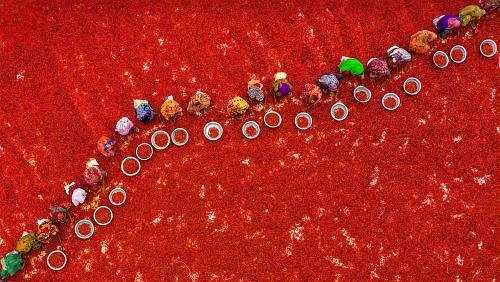WHO-supported incinerators by country
-
Tajikistan (2022)
Through Gavi partnership, WHO supplied 8 diesel-fired (20–30 kg) and 6 wood-fired (10–15 kg) incinerators across regions to improve vaccine-related waste disposal in remote immunization centers (who.int). -
Sudan (May 2024)
WHO, with EU funding, installed 8 high-temperature, zero-emission incinerators in hospitals across five states—Northern, Red Sea, Gedaref, Blue Nile, and River Nile—to enhance infection control and environmental safety . -
Yemen (by 2024)
A joint initiative by WHO and the World Bank resulted in the deployment of 60 treatment units (shredders with burial pits), enabling 139 of 170 health facilities to safely handle medical waste (up from ~20%) (essentialaction.org).
UNDP & partners (GEF-funded) in Africa
-
Across Ghana, Madagascar, Tanzania, and Zambia, UNDP–WHO–Health Care Without Harm introduced non‑burn technologies—autoclaves, microwaves—and implemented best practices, reducing reliance on polluting low‑cost incinerators (global.noharm.org).
-
Incinerators for pharmaceutical waste were installed with UNDP support in Zimbabwe, Afghanistan, Chad, São Tomé & Príncipe, Sudan, and Zambia (undp-capacitydevelopmentforhealth.org).
World Bank Involvement
-
The World Bank has historically funded at least 30 health sector projects involving incinerators in over 20 countries (essentialaction.org).
-
Among ~156 World Bank Group (WBG) waste‑tech projects, ~29% included health-care waste incineration, with ~49% of all projects in Africa, and high concentrate in Kenya (12 projects), Brazil (8), Turkey (7), India (6), Zimbabwe (6), Tanzania (5), Mexico (5), Argentina (5), South Africa (5), Zambia (5) (essentialaction.org).
However, the Bank has faced criticism for continuing to promote incineration over safer alternatives, despite environmental concerns—experts argue that advanced alternatives are safer and more sustainable (essentialaction.org).
Environmental & Health Impacts
-
Hazards: Low‑temperature or unimproved incinerators release harmful pollutants—dioxins, furans, heavy metals, particulate matter—and residual ash may leach toxins (unep.org).
-
Standards: Safe incineration requires high temperatures (≥850‑1 100 °C) and gas‑cleaning systems; otherwise, air pollution and public health risks remain high (who.int).
-
WHO/UNDP push: WHO encourages adoption of non‑burn alternatives (autoclaving, microwaving, chemical disinfection) where feasible (who.int).
Summary Table – By Support & Scale
| Supporter | Countries & Scale |
|---|---|
| WHO (with Gavi/EU) | Tajikistan (14 units), Sudan (8 modern incinerators), Yemen (60 treatment units) |
| UNDP + GEF partners | ~2000s–2020s: Installed pharma incinerators & non-burn technology in 10+ countries |
| World Bank | 30+ health-sector incinerator projects Worldwide; heavy footprint in Africa & Asia |
-
Medical waste incinerator projects
-
WHO‑supported medical waste disposal
-
World Bank medical waste management
-
UNDP medical/pharmaceutical incinerators
-
High‑temperature incinerators ≥850 °C
-
Non‑burn alternatives in healthcare waste
-
Environmental impact of healthcare incinerators
-
Highlight key actors: WHO, World Bank, UNDP, GEF, Gavi, EU.
-
Quantify scope: units installed (e.g., 14 in Tajikistan, 8 in Sudan).
-
Emphasize standards: High-temp (>850°C) vs low-temp emissions.
-
Stress alternatives: Autoclaves, microwaves, shredders.
-
Discuss geography: Strong focus on Africa, Central Asia, Middle East.
-
Acknowledge critiques: WBG’s environmental concerns.
Overall, globally-funded medical waste incineration efforts have scaled across 20+ countries—with WHO deploying dozens of both modern incinerators and treatment units (e.g., 14 in Tajikistan, 8 in Sudan, 60 units in Yemen), UNDP/GEF backing non‑burn and pharma incineration in Africa, and the World Bank funding 30+ projects. Yet environmental experts advocate for high‑temperature incinerators with proper emission controls—or better still, non‑burn technologies—to minimize risks.







